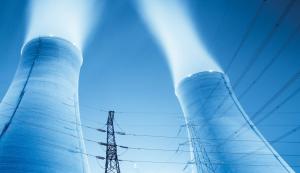Reprocessing nuclear fuel is a sustainable and viable option.
Tim Echols is a commissioner to the Georgia Public Service Commission, first elected in 2010.
As an outspoken energy regulator in a very pro-nuclear power state, I have been somewhat baffled by the lack of support for the reprocessing of spent-nuclear fuel. Why would a country that recycles even the smallest Coke can or cardboard container not be united in reprocessing some of the most toxic material that we produce?

My journey began with my very first meeting of regulatory commissions in 2011 where I attempted to push through a resolution about spent fuel reprocessing. Little did I know the opposition that awaited me - that I had stumbled into some quick sand, and was not even sure why. We had a conference call about the resolution, and it did not even receive a second. The resolution seemed as toxic as the nuclear waste I was talking about.
Maybe that was because I was simply looking at this from only a chemistry perspective. After all, nuclear fuel recycling is simply separating usable materials from non-recyclable end waste, like fission products and minor actinides, through a series of mechanical and chemical processes. The US Department of Energy had done this successfully at the Savannah River Site with government-related waste, so why not allow this to happen on the commercial side?

